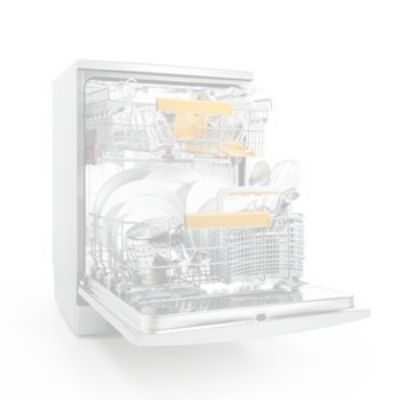Medication mimicking alcohol may benefit laryngeal dystonia patients

Once symptoms of alcohol-related brain damage occur, they will continue to worsen if drinking continues. The only way to prevent a worsening of symptoms is to quit drinking, although this should not be attempted without professional help. The frequency and intensity of your tremors can depend on the severity of your alcohol drinking. After a heavy drinking session, your brain can get used to lower levels of stimulation caused by alcohol’s depressant effects. When you wake up, your brain becomes overwhelmed with activity, triggering tremors and shaking during a hangover. Currently, LD is most commonly managed with botulinum neurotoxin (Botox) injections, but this treatment is ineffective for up to 40% of patients who receive it.
- It’s a good starting point to figure out if your drinking habits are something you should be concerned about.
- Whatever recovery option you choose, it is important to have medical supervision.
Alcohol Shakes or Tremors
Alcohol abuse affects your physical and mental health, so it’s important to be guided by someone who knows your medical history. Your doctor may personally oversee your alcohol withdrawal, or he or she may refer you to an inpatient or outpatient treatment facility. Whatever recovery option you choose, it is important to have medical supervision. Alcohol tremors are the uncontrolled shaking or involuntary movement of one of the parts of the body, and they are a key symptom of alcohol withdrawal. If left unmanaged, alcohol tremors may progress to a life-threatening condition called delirium tremens.
When to seek medical help?
Additionally, some insurance plans may require prior authorization or limit the amount of treatment covered. Therefore, it’s important to understand tremors alcohol your insurance coverage before beginning treatment. You may be concerned about having DTs symptoms or nervous about seeking treatment. Your doctor and other providers aren't there to judge you but to help manage your symptoms and improve your chances of recovery.
How Do I Get My Loved One Help For Drug Addiction?

Medical care may include sedatives and treatments for the effects of delirium tremens. In extreme cases, alcohol withdrawal can lead to a condition known as delirium tremens. Delirium tremens can result in seizures and, in rare cases, can be fatal.

The more time you spend with people encouraging your alcohol-free lifestyle, the better your chance of successful recovery. Looking ahead, Simonyan's team is planning to conduct a phase 3 multi-site randomized clinical trial to further assess the drug's efficacy and safety in LD patients. Over the course of two days, each patient received a single dose of 1.5g of sodium oxybate or placebo that was matched by its taste, smell, color, and appearance of the drug.
Signs and Symptoms
Moving forward, you may also need to go to patient and family counseling to discuss your alcoholism. Alcohol-induced tremors, or “shakes,” are neurological conditions caused by the substance’s effect on the nervous system. Whether it’s social drinking, binge drinking, or chronic alcoholism, excessive consumption can lead to these tremors. They can appear as early as 6 hours after drinking and might last for days. Please remember that the information provided in this article should not replace professional medical advice. If you’re concerned about your shaking after drinking or believe it could be a symptom of a more severe issue, consult a healthcare professional.
In some mild cases, the tremor may be light and hardly noticeable, but in the more severe cases, it may cause pain and other symptoms that can interfere with daily activities. As a central nervous system depressant, alcohol slows brain activity and reduces energy levels. But when someone consumes large amounts of alcohol regularly, their body adapts to the continuous presence of alcohol. When you drink alcohol, your body responds by decreasing the number or sensitivity of receptors that bind to the neurotransmitter gamma-aminobutyric acid (GABA). It simultaneously increases the number or sensitivity of receptors that bind to glutamate, another neurotransmitter, in a bid to counter the sedative effects of alcohol.
Liver Disease
This can lead to short and long-term complications for your physical and mental health. This explains why individuals who frequently consume substantial amounts of alcohol may wake up experiencing tremors and feel the need to drink to regain stability. Typically, tremors reach their peak between 24 to 78 hours after the last drink, but they may persist for several weeks or even longer. Various factors influence this duration, such as the severity of alcohol dependence for the individual experiencing the shakes. If you are going to have delirium tremens, usually symptoms start between 2 and 4 days after your last drink. However, some symptoms may not show up until up to 10 days after you give up alcohol.

When to Seek Medical Help
- A hangover usually begins a few hours after you finish drinking, as your blood alcohol concentration (BAC) begins to fall.
- The most effective way to avoid delirium tremens is to discontinue alcohol gradually, under the guidance of a medical provider.
- Alcohol shakes are typically present in the hands, but they may also appear in the arms or legs.
- The main symptoms of DTs often take between three to seven days to go away.
- This can lead to short and long-term complications for your physical and mental health.
However, treatment strategies for shakes and alcoholism may differ for everyone. Doctors can recommend the most appropriate treatment according to the severity of a person’s withdrawal symptoms and general health conditions. Alcohol shakes are a common and mild symptom of alcohol withdrawal.

Here, professionals aid people who are detoxing using medications and therapies. Hepatic encephalopathy develops when the liver cannot filter toxins from the blood that affect the brain cells. Nicknamed the ‘liver flap,’ this tremor is often compared to a bird flapping its wings and look similar to symptoms of Parkinson’s disease. Therefore, most people experiencing DTs should detox from alcohol in a medically monitored facility.

































